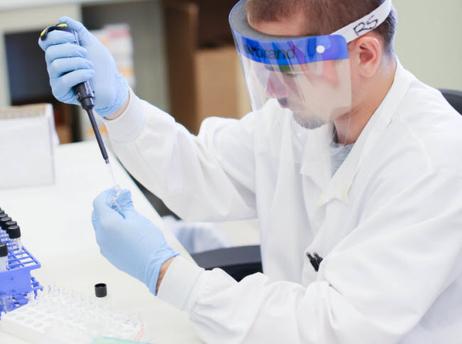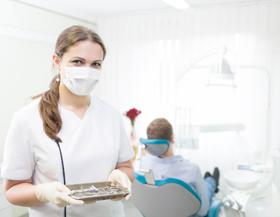Amidst an economic crisis, rising tuition costs, and a more competitive job market, community college students looking for ways to generate income. One alternative wage-earning option helping students to make ends meet involves monitored drug trials and clinical studies. In fact, as North Jersey News reveals, “Joining a study has compelling advantages... You can take pride in helping others.” Adding to the benefits gained by researchers and patients, students enrolled in safe and controlled clinical trials are able to earn extra cash to help cover the many costs of their education and living expenses.
Yet, before signing up, experts assert that students must be aware of the serious potential cons amidst the seemingly ideal pros.
Drug Trial Opportunities
While each community college campus, as well as nearby hospitals and universities, typically offer their own unique opportunities for clinical studies and trials, students often seek out more widely available venues as well. For example, companies such as GPGP, a free online directory service listing an array of of volunteer-based trial opportunities, allows interested individuals to pursue thousands of national and even international research studies. As GPGP explains, “Volunteering for strictly regulated and ethical approved studies can be an excellent way to help to pay educational costs, supplement your income while working, or fund your travels while spending time in foreign countries.”
Individuals who are healthy, eligible, and who comply with all of the required study mandates can enjoy an added income with minimal extra hours of work. Examples of some available research trials include:
- Sleep deprivation studies
- Time isolation studies
- Medical trails
- Diet and exercise studies
- Addiction studies (including nicotine, caffeine, alcohol, etcetera)
- Visual, dermatological, psychological, and other physical and cognitive studies
- Sensory studies
Adding to these, as well as many other research topics, some students also choose to supplement their income through medical donations. Although often controversial and potentially harmful, some individuals earn extra wages through egg or sperm donations, as well as plasma donations. While some trials can pose serious side effects, as well as potential complications, many experts assert that the many benefits outweigh any concerns. For example, students who have a family history of mental illness, such as depression, may be able to earn an income while also benefiting from free (experimental) depression treatments. Treatments may include physical exercise, therapy, dietary changes, or even drugs. With a variety of experimental treatment options, students interested in finding their own personal anodynes may be able to help further scientific studies while also enjoying their own personal growth and healing.
Similarly, students with a history of substance abuse, such as alcohol or nicotine, can also seek studies that serve to break their addiction habits while also earning extra cash. Although the reimbursement amounts vary, depending on the specific details of each trial, New York Clinical Trials, for example, reports that eligible candidates can earn approximately $10 per hour in addition to $150 per day when meeting specific trial guidelines.
Are Students in Danger with Paid Trials?
While paid trials are certainly appealing for many struggling students, some officials are seeking to highlight the many potential dangers of these pursuits. As CBS News reveals, recent government studies have reported that many volunteers are completely unaware of the exact details and information regarding the subject or drug for which they are volunteering. As the demand for human study subjects has grown, the pharmaceutical industry has gradually lowered its qualification standards, allowing more and more candidates to be accepted as participants in an array of studies.
Adding to this, the pharmaceutical companies, as well as the universities and institutions leading some tests, often have a financial investment in the success of some drugs; therefore, some companies stand to earn thousands to millions of dollars if the drug trial leads to a safety approval. With this information, experts are uncovering more and more unethical practices in some of the major drug trials in recent years.
Ultimately, many whistle-blowers directing attention towards drug testing schemes want to warn interested candidates of the potential dangers, some of which include physical / mental side effects, long term side effects, or other health implications. Yet, in spite of serious concerns, many officials continue to assert that drug trials are essential, beneficial, and required for medical progress. As ABC News reports, the FDA and regulatory teams are seeking to reform trials to improve the safety for volunteers. Suggested reforms include required clear explanations and information for volunteers, a clear statement of potential risks, a national registry of drug trial listings, as well as additional safety measures. With nearly 4 million Americans engaging medical trials each year, it seems evident that many find the risks to be worth the rewards.















